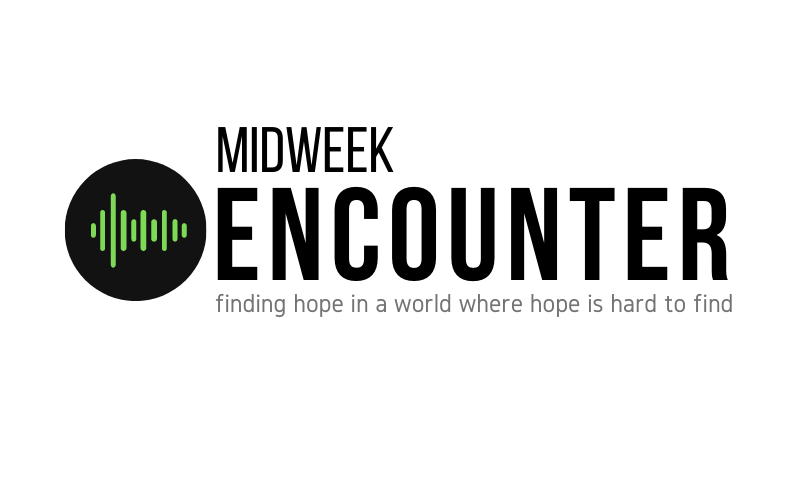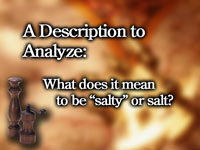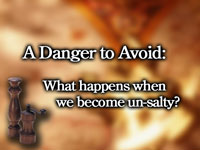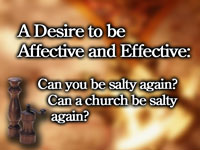



A bruised and battered turtle crawls into a police station. He says to the cop: "A gang of snails just beat me up!” The cop says: "Did you get a good look at them?" The turtle says: "Well, no, it all happened so fast!”
A turtle family went on a picnic. They had prepared seven years for their outing. The family left home, searching for a suitable place. During the second year of their journey, they found it. For about six months they cleared the area, unpacked the picnic basket, and completed the arrangement. They discovered, however, that they had forgotten the salt. A picnic without salt would be a disaster, they all agreed. After a lengthy discussion, the youngest turtle was chosen to retrieve the salt at home. Although he was the fastest of the slow-moving turtles, the little turtle whined, cried, and wobbled in his shell. He agreed to go on only with one condition: that no one would eat until he returned. The family consented and the little turtle left.
Three years passed, and the little turtle had not returned. Five years. Six years. Then in the seventh year of his absence, the eldest turtle could no longer contain his hunger. He announced that he was going to eat and began to unwrap a sandwich. At that point, the little turtle popped out from behind a tree shouting, "SEE! I knew that you wouldn’t wait! Now, I am not going to get the salt!"
That may be one of the poorest lead in jokes I have ever shared from this platform but for some reason it provided me with a little comic relief this week. I have been up to my ears in salt research. Why? Because Jesus introduced this word as a word that describes those of us in this room who have taken His name and call ourselves Christ followers.
“You are the salt of the earth. But what good is salt if it has lost its flavor? Can you make it salty again? It will be thrown out and trampled underfoot as worthless.” Matthew 5:13
“You are the light of the world—like a city on a hilltop that cannot be hidden. 15 No one lights a lamp and then puts it under a basket. Instead, a lamp is placed on a stand, where it gives light to everyone in the house. 16 In the same way, let your good deeds shine out for all to see, so that everyone will praise your heavenly Father.” Matthew 5:14-16
We are studying today, the verses that immediately follow the Beatitudes. Next week we will stop this series and enter into a time of preparing our hearts for Easter.
In the Beatitudes, Jesus gives some qualities that ought to be present in every Christ follower. Remember that Jesus is speaking to the 12 men He personally invited to follow Him. The words that He spoke were intended for those who are serious about following Christ. Even today He is looking for those who will take His message seriously. He is looking for people who will faithfully live out the word of God on this earth.
They will be meek and merciful. They will be peacemakers and persecuted and they will maintain pure hearts and motives throughout their lives on this earth. In all seriousness, what can a people described in terms like meek and merciful do to make a difference in their world? In fact, while Jesus is promising persecution He is also modeling and teaching us how to serve others in the midst of it.
It might be tempting to think that because the Beatitudes are essentially interior in nature that we should isolate ourselves away from the world. For centuries there have been people who have even chosen to take this approach. It is impossible to live the eight Beatitudes in private. They are powerfully social and outward when put to work.
Christ steps away from the eight Beatitudes with two transitional metaphors that everyone can wrap their head around. He basically is telling us how we should relate to the world around us.
“You are the salt of the earth. But what good is salt if it has lost its flavor? Can you make it salty again? It will be thrown out and trampled underfoot as worthless.” Matthew 5:13
Jesus spoke these words to a few uneducated, poor men who must have been overwhelmed and maybe amused by them. “You (you alone) are the salt of the earth (not just Palestine but the whole earth.) We know what they don’t know about themselves and that is that they did just what Jesus told them they could do. In fact they turned their world upside down.  1. A Description to Analyze: What does it mean to be “salty” or salt?
1. A Description to Analyze: What does it mean to be “salty” or salt?
Whenever Jesus uses a metaphor in the Bible a serious student of God’s word will take a closer look. He doesn’t typically throw words around without there being a much deeper meaning than just the surface use of the word. The word of the day for us is salt.
People in general do not realize the importance of salt in maintaining the life and health of their bodies.
An exact percentage of it is always present in our bloodstream, and any great deviation from this amount can result in sickness and even death. Salt is a sustainer of other life, too. For this reason sea water will support many more organisms than fresh water. As a preservative, it retards spoilage. Also it is a splendid condiment, adding zest and savor to our food.
Salt is the result of two chemicals coming together: Sodium is reactive and explosive and Chlorine is poisonous on its own.
Salt in the Scriptures is said to be:
We are called salt because:
A. Salt is Preserving:
Salt wards off rot and decay! It is rubbed into meat in an effort to preserve it.
B. Salt is Penetrating :
Salt will penetrate and infiltrate whatever it touches. It is an aggressive substance.
C. Salt is Purifying:
Salt has remarkable cleansing ability
D. Salt is Pleasing:
Bringing out the best. Salt blends and adds flavor to food. In fact, there are some foods that are better off not eaten, if there is no salt! So too, an authentic follower of Jesus Christ will flavor the world around him.
E. Salt can be Poisonous:
Salt kills some things! Ever poured salt on a slug? Slugs and salt do not mix! Salt poured on a lawn will kill the grass. Too much salt is not good for your blood pressure. Abimelech, in Judges 9:45, took a city and the sowed the city with salt to prevent the ground from being used to grow crops. He killed the fields with salt.) By the same token, when authentic Christianity is sowed into the lives, homes and communities of the world, some things will be put to death. 2 Cor. 5:17  2. A Danger to Avoid: What happens when we become un-salty?
2. A Danger to Avoid: What happens when we become un-salty?
Salt was a very valuable in the ancient world. So valuable, in fact, that the Roman Legions were often paid their wages in salt. This payment was called the "salarium."
It was possible for salt in that day to lose its flavor. The salt used then was far different from that which we see today. Our salt is a chemical compound called chloride of sodium or sodium chloride. The salt used in the ancient world was either mined from the salt cliffs along the Dead Sea, which were 7 miles long and several hundred feet high, or it was evaporated from the waters of the Dead Sea. Either way, it was always mixed with mineral or vegetable matter. When this substance was exposed to the elements or when it touched the earth, the salt lost its salty taste. Even the surface salt that was dug from the cliffs was discarded because exposure to he light rendered it tasteless. This tasteless salt also lost all the qualities that made it so valuable and sought after to begin with.
The effectiveness of salt is conditional: it must retain its saltiness. Strictly speaking, salt can never lose it saltiness. Sodium chloride is a very stable chemical compound which is resistant to nearly every attack. Nevertheless it can become contaminated by mixture with impurities, and then it becomes useless, even dangerous.
It is possible for Christ followers to loose their saltiness as well. This happens to us when we, just like salt in ancient times, come into too close of an alliance with the culture. When get to be more like the culture than we are like Christ, then we have lost that which sets us apart and makes us valuable to God’s work on earth.
When Mahatma Gandhi was the spiritual leader of India, he was asked by some missionaries, “What is the greatest hindrance to Christianity in India?” His reply was, “Christians.”
George Barna's research has shown that the average Christian in the average evangelical church is almost indistinguishable from the rest of society. He is not talking about being different in some artificial and outward way that you might see in some legalistic churches. Rather, he is talking about the fundamental moral and ethical difference that Christ can make in how we live. When our teens, supposedly accept Christ, get pregnant and do drugs at the same rate as the general teenage population - when our marriages end in divorce at the same rate as the rest of society - when we cheat in business, or lie, steal, and cheat on our spouses at the same statistical level as those who say they are not Christians - something is wrong.
A Peanuts cartoon, showed Peppermint Patty talking to Charlie Brown. She said, "Guess what, Chuck. The first day of school, and I got sent to the principal's office. It was your fault, Chuck." He said, "My fault? How could it be my fault? Why do you say everything is my fault?" She said, "You're my friend, aren't you, Chuck? You should have been a better influence on me."
In ancient times, when salt lost its savor, it was then taken out and cast into the footpaths. It was used much as gravel is in our day. Its only purpose then was to kill out the weeds that might grow in the road, and for me to walk on to keep their sandals out of the mud. Literally, it was to be trodden under the foot of men.
Every Christian in this room needs to understand that when we lose our saltiness and when we cease to function as salt in the world, then we too have become good for nothing. This has huge ramifications for the world around us.
The underlying implication of Christ saying, “You are the salt of the earth” is that the world tends toward decomposition and is actually rotting away. When the world is left to itself, it festers and putrefies, for the germs of evil are everywhere present and active. This is the consistent teaching of Scriptural teaching and Biblical history.
The world began as a perfect creation, but when sin came, decay set in, and as a result the world became rotten, so that God eventually removed nearly the entire population of the world by the Flood. Given another chance, man fell into immediate debauchery, leading after a time to Sodom and Gomorrah.
We live in a world that constantly tends toward decay. Some of the Christless structures of the world may look okay, but inside they are rotting away, and it is just a matter of time before they fall. At the end of the nineteenth century there was a feeling of confident optimism in the western world, based on the belief that an ongoing biological and philosophical evolution would eventually solve all man’s troubles and lead to something closely akin to the Greek’s “Golden Age.” When you read what the thinkers of that day were writing you read that. . .wars were going to be abolished, diseases were being cured, suffering was going to be not only reduced but finally eradicated. It was going to be an amazing century. Most of the problems were going to be solved because man was now starting to think. The masses through education would cease giving themselves to drink and immorality and vice. And as all the nations were similarly educated to hold conferences instead of rushing to war, the whole world was going to be a paradise. Not too many people think that way today.
All of this suggests to us the function of the church. I am not talking about a building but the collective body of authentic and committed people that live out their faith consistently day after day around the world.  3. A Desire to be Affective and Effective: Can you be salty again? Can a church be salty again?
3. A Desire to be Affective and Effective: Can you be salty again? Can a church be salty again?
Salt has no hope of becoming salty again. You and I are dealing with the supernatural and when we align ourselves with Christ and His ways we will be an affective influence in our communities.
There is an urgency here to what Jesus is saying:
“It will be thrown out and trampled underfoot as worthless.”
Nothing good can be done with worthless salt. All it is good for is to be tossed onto the road where perhaps it will fill in a few cracks as it is further adulterated. There since it has lost pungent saltiness, it sterilizes the soil and retards plant growth, bringing to the roadway a blighted barrenness.
This substance call salt, once so beneficial in its pungent, pure form, now brings only desolation. The Christ following life that has lost its saltiness is good for nothing at all.
Church history leaves us a living example of what can happen. You will search in vain for the churches of Asia Minor with their flourishing parishes. The churches of Corinth and Ephesus are all but nonexistent. You will look in vain for the church of North Africa where the great Augustine ministered.
Historically the chances of any local church having a sustained life of effectiveness over a century is almost unheard of. This doesn’t mean they will cease to exist but they generally lose their saltiness. Our own church would be a great example of this very principle. We are in our 89th year as a church.
If you were to study the history of this church you would find that in many ways they had become dead. On the surface we were still considered to be strong church. Over two hundred in attendance every Sunday qualified this church as a mid-size but above average attended church. A close examination however would reveal that despite having two “revivals” a year and having services three times a week, we were not reaching lost people with the message of Christ good news and we were having very little impact on our community outside the walls of this building.
In 1945 we started another church on the east side of town and they eked out an existence until two years ago they were down to about nine people. In both of our cases the only hope for being salt in our communities was to have a major adjustment to our approach to how to be the church. We adjusted our vision. We refocused our church and two years ago we were invited to refocus our church plant called East side.
Two weeks ago the District Advisory Board of our denomination voted unanimously to give us the “Eastside” now known as Real Life church. Real life is now truly Newark Church of the Nazarene in another location. We have already taken a church that was nearly dead and are in the process of giving it a chance to once again be salt in neighborhood.
Christianity has in fact had a profound positive effect on the world. The most dramatic impact of Christianity on the world is that it has attached new value to human life. Prior to Christianity infanticide, and abandonment of children was a common practice. Hospitals as we now know them began through influence of Christianity. The Red Cross was started by an evangelical Christian. Almost every one of the first 123 colleges and universities in the United States has Christian origins, founded by Christians for Christian purposes. The same could be said of orphanages, adoption agencies, humane treatment of the insane, the list goes on and on of dramatic impact of Christianity in our world. [D. James Kennedy. “What If Jesus Had Never Been Born?” (Nashville: Thomas Nelson Pub., 1994) pp. 3- 4]
The movie Amazing Grace is playing currently in theaters. It is the story of William Wilberforce. I would encourage you to bypass the laziness of seeing a movie and pick up his biography which clearly tells the whole story. Wilberforce clearly demonstrated that a pinch of salt can go a long way. He almost single handedly brought about the Slavery Emancipation Bill in England. Dwarfed by disease, he did not appear to be a person who would accomplish anything. Boswell wrote of him after listening to one of his speeches,” I saw a shrimp mount the table; but as I listened he grew and grew until the shrimp became a whale.” He was tiny elfish, and misshapen but he was salt to British Society, not only bringing preservation but enticement to Christ by his beautiful life.
You see every one of us in this room needs to evaluate our influence on the society around us. Too often, we have accepted the roles of bench warmers when it comes to being active in our world. We have largely shunned social involvement in the last one hundred years yet there was a time when Christians led the way in reshaping our world.
Daniel O. Moberg gives ten reasons in his book, Inasmuch, why evangelicals have neglected the social aspects of their faith.
The bottom line of all of this is simply put salt must be in use to be effective. Salt is the shaker is useless. It is only as you and I apply ourselves, empowered by the Holy Spirit, into the world around us that we are acting like salt. When we function like we were intended to function those around us will get thirsty for the presence of God in there lives.
No salt leaves only a bland and boring taste that is not soon forgotten.
Robert Louis Stevenson once wrote in his diary as if it were some exceptional fact: “I have been to church today and am not depressed.”
In Brooklyn, New York, Chush is a school that caters to learning disabled children. Some children remain in Chush for their entire school career, while others can be mainstreamed into conventional schools.
At a Chush fund-raising dinner, the father of a Chush child delivered a speech that would never be forgotten by all who attended. After extolling the school and its dedicated staff, he cried out, "Where is the perfection in my son Shaya? Everything God does is done with perfection. But my child cannot understand things as other children do. My child cannot remember facts and figures as other children do. Where is God's perfection?" The audience was shocked by the question, pained by the father's anguish and stilled by the piercing query. “I believe," the father answered, "that when God brings a child like this into the world, the perfection that he seeks is in the way people react to this child." He then told the following story about his son Shaya.
One afternoon Shaya and his father walked past a park where some boys Shaya knew were playing baseball. Shaya asked, "Do you think they will let me play?" Shay's father knew that his son was not at all athletic and that most boys would not want him on their team. But Shaya's father understood that if his son was chosen to play it would give him a comfortable sense of belonging. Shaya's father approached one of the boys in the field and asked if Shaya could play. The boy looked around for guidance from his team-mates. Getting none, he took matters into his own hands and said "We are losing by six runs and the game is in the eighth inning. I guess he can be on our team and we'll try to put him up to bat in the ninth inning." Shaya's father was ecstatic as Shaya smiled broadly. Shaya was told to put on a glove and go out to play short center field. In the bottom of the eighth inning, Shaya's team scored a few runs but has still behind by three. In the bottom of the ninth inning, Shaya's team scored again and now with two outs and the bases loaded with the potential winning run on base, Shaya was scheduled to be up. Would the team actually let Shaya bat at this juncture and give away their chance to win the game?
Surprisingly, Shaya was given the bat. Everyone knew that it was all but impossible because Shaya didn't even know how to hold the bat properly, let alone hit with it. However as Shaya stepped up to the plate, the pitcher moved a few steps to lob the ball in softly so Shaya should at least be able to make contact.
The first pitch came in and Shaya swung clumsily and missed. One of Shaya's team-mates came up to Shaya and together they held the bat and faced the pitcher waiting for the next pitch. The pitcher again took a few steps forward to toss the ball softly toward Shaya. As the pitch came in, Shaya and his team-mate swung at the bat and together they hit a slow ground ball to the pitcher. The pitcher picked up the soft grounder and could easily have thrown the ball to the first baseman. Shaya would have been out and that would have ended the game.
Instead, the pitcher took the ball and threw it on a high arc to right field, far beyond reach of the first baseman. Everyone started yelling, "Shaya, run to first. Run to first." Never in his life had Shaya run to first. He scampered down the baseline wide-eyed and startled. By the time he reached first base, the right fielder had the ball. He could have thrown the ball to the second baseman who would tag out Shaya, who was still running. But the right fielder understood what the pitcher's intentions were, so he threw the ball high and far over the third baseman's head. Everyone yelled, "Run to second, run to second."
Shaya ran towards second base as the runners ahead of him deliriously circled the bases towards home. As Shaya reached second base, the opposing short stop ran to him, turned him in the direction of third base and shouted, "Run to third." As Shaya rounded third, the boys from both teams ran behind him screaming, "Shaya run home." Shaya ran home, stepped on home plate and all 18 boys lifted him on their shoulders and made him the hero, as he had just hit a "grand slam" and won the game for his team.
"That day," said the father softly with tears now rolling down his face, "those 18 boys reached their level of God's perfection."
As you leave today may you live out this benediction and blessing:
Embrace this new week.
Be diligent in your work,
Kind to your neighbor
Generous to the discouraged,
Patient with your family,
Loyal to the Master.
Renounce Evil,
Feed the poor,
Study the Scriptures,
Begin and end each day in prayer.
In sunshine and shadow trust the Lord.
The depth of His mercy is unfathomable,
The length of His forgiveness is immeasurable,
The flow of His love is unending.
Go rejoicing.
And go in peace, Amen